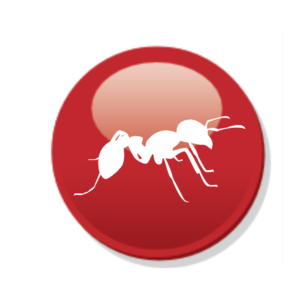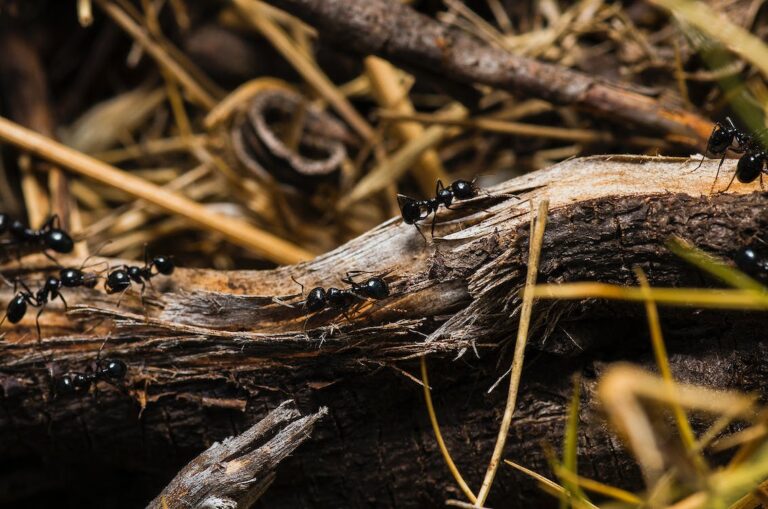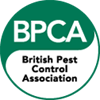
Ant Pest Control
Ant Pest Control Services for Essex & East London
Most ants in the UK are harmless, but these familiar insects are such an annoyance to homeowners – once they invade a property they don’t stop! The average ant colony in the UK has a population of anywhere between 4,000 to 7,000 ants, although it can be up to 15,000 ants. And this a huge amount of ants to have running around your home as unwelcome guests!
They Cause Damage in Excessive Numbers
Ants play a key role in ecosystems around the world, and in the UK they provide great pest control of their own to gardeners by managing the greenfly population. While they do little damage to plants, they disturb soil while building their nests which can cause damage to lawns and disturb plant roots.
Although they can be beneficial to gardens, they are a nuisance to have inside your house, especially in such large numbers. Our team of professional ant control experts understand the need for fast and thorough ant removal, and offer ant pest control services in Essex & East London, including areas in and around Chelmsford, Southend and Basildon.
Ant Behaviour, and Why They Can Infest Properties
Whilst they are active all year round, as they are cold blooded, ants nest deep underground in the winter to avoid the dropping temperatures. When the warmer weather arrives the new queens awake from hibernation and the rest of the colony venture out to begin their work outside – digging tunnels and collecting food.
This search for food is often where ants and homeowners find themselves unfortunately sharing the same space. Removing ants can be a hassle and not always effective, so let our team of professional exterminators and pest control experts save you the time and effort!
Call now on 0800 955 0003T
How do I know if I have an ant problem?

Ants don’t often make themselves known as house guests, but the quicker you can get rid of them, the better! Seeing even just a couple of ants in your home can be a sign of a bigger problem that is either just waiting to happen, or that is hidden away where you can’t see the scale of the issue.
- Seeing live ants in the home is often the thing that alerts people to a potential ant pest control problem. Places ants will usually be found are in the kitchen – near light switches and in appliances, and also around gaps in doorways/walls around the rest of the house. Seeing a long line of ants in the house suggests they have found a good food source which they have communicated to others in the colony.
- Finding small piles of sawdust, soil or debris around the edges of the room is known as Frass,which is debris ants have excavated.
- If your property has wooden structures, such as beams, then you may be able to identify a weakness, or listen for hollow sounds.
- There may be noises coming from within your wall cavities from crawling ants making soft scratching noises as they travel around within the wall cavities and gnaw the wood inside the wall.
What causes an ant pest control problem?
While there can be many causes of ants being found indoors, the most common reason for ants to become a problem inside your home is that they have found a food source. The main problem ant, the Common Black Ant (Lasius niger), live outdoors under the ground but enter through tiny crevices and cracks into houses when they are foraging for food
Ants looking for food sources are particularly keen on anything containing sugar – so any drinks that have been spilled (such as fruit juice or fizzy drinks) need to be cleaned up thoroughly, or will attract them. Food items, like biscuit crumbs or cake left out on a worktop, will have the same unwanted effect. When they are looking for food they will leave a scent trail called an ant pathway which not only helps them find their way back to the nest but also allows other ants to find their way to the food source. So once you have one ant, you will suddenly have many!
Ants also need a water source – and anything, from water on potted plants to accumulated condensation, can be a good source of moisture for an ant.
Ants can fit through very tiny gaps, so you may need to watch them to work out where they’re coming from. And while these kinds of tiny gaps may not be the root of the problem, providing the ants with access will only keep them coming back.
What types of ants are there?
While there are more than 13,000 species of ant to be found globally, lots of these ants are only able to live in warm climates so don’t inhabit the UK. Due to our cooler conditions we have roughly 50 types of ant in Britain, with the most common pest types being:
- Lasius niger, the common black garden ant. This is the ant most likely to invade homes and is a well known sight in UK gardens.
- Lasius neglectus, Invasive Garden Ant, which is a close relative to the black garden ant, but with a slightly paler thorax. These ants have many queens where the ‘budding’ of the colonies with each queen helps grow the colonies.
- Monomorium pharaonic, Pharaoh’s Ant. These tropical species are found only in heated buildings in the UK, that although small in size, can have large complex colonies spread throughout the building. Control of these ants is very specialist and needs thought and planning before tackling them.
- Tapinoma melanocephalum Ghost Ant, small ants with a dark head and thorax, yet a pale abdomen. Like the Pharaoh’s ant, careful planning on how to treat is essential otherwise the infestation could actually get worse.
Where can ants be found in the home?
Ants can enter through such tiny spaces that their entry points are very often incredibly small cracks or holes in inner house walls, window frames, house foundations, doors frames and any poorly sealed door or window.
Once in the home, ants favour the kitchen, as this allows them direct access to their new found source of food. But they may also make them home outside of the kitchen, in somewhere that allows them to easily access their chosen food source.
What issues can an ant problem cause?
Although they are small, ants can be quite destructive and can cause structural damage to your property as they tunnel through wood.
Black garden ants can damage patios and garden brickwork by making cracks wider. They can cause garden walls to fall by removing cement as they tunnel.
Domestic ants are not known disease carriers, but the Pharaoh ant is a tropical ant that is found in the UK. These ants can be dangerous as they can transmit diseases, and they love to be in hot places – so anywhere with a lot of heat, such as in bakeries or factories where ovens or machinery are letting off warmth, can be a potential home for them.
While domestic ants are not harmful to humans in the same way as Pharaoh ants can be, they can still cause huge and potentially dangerous problems. If they damage cables on appliances or other electrical wires, this becomes a potential fire hazard.
Can I get rid of an ant problem myself?
The short answer to this question is yes – you can buy many different types of poisons and powders and use them yourself to treat an ant problem in your house. But there are also a lot of problems with the DIY approach to an ant infestation:
- Getting access: As ants live underground it may be very difficult to access the areas that are the cause of the problem. A professional will know how to safely access those hard to reach areas.
- Identifying the species: Identifying the one of several species of ant in the UK is critical, as the wrong treatment of certain species can actually make the problem much worse. A professional will be able to correctly identify the species and treat it without the risk of spreading the problem further into your property.
- Ant pheromones: When you kill an ant its body releases pheromones which alerts the rest of the colony that there is danger. This actually attracts more ants, who come to investigate what the risk is to the rest of the colony. So, when tackling the issue by yourself, you can actually make it worse. A professional will know how to eliminate the ant problem – without attracting more ants!
- Effectiveness: A professional will be able to do a thorough job, effectively removing every ant.
- Treating the colony: Shop bought products that kill the ant on contact won’t tackle the cause of the problem – i.e. the rest of the colony. A professional will be able to lace the worker ants with poison, and this will be carried back and spread inside the nest.
Why choose Pest ID for ant pest control?
After carrying out a survey and identifying the species, the team Pest ID will work out what is the quickest and most efficient way of clearing the infestation, that will also keep you, your family, pets and non-target species as safe as possible
What can I do about flying ants?
Every year you may notice a particular day, usually in mid to late July, when your garden is full of flying ants. This is known as flying ant day, although it can actually take place over a handful of days. It happens when the Common garden ants’ flying ants (known as alates) emerge from deep underground, these are a combination of new sexually mature queens and males. Other nearby nests synchronise their release of flying ants on the same day to increase the chances of mating from other colonies, which is why you will see so many all at the same time. There would have been an entire army of these ants, just waiting for the day with the right weather conditions to emerge. This battalion waits deep underground, so there is no way of accessing them to prevent them heading for the surface.
Although it can be quite intimidating to witness this mass exodus, it is a perfectly natural and harmless phenomenon. You may think that shutting doors and windows will keep any stray flying ants out, but this will stop any indoor ants from getting out – so opening windows and doors is usually the most successful solution for getting rid of any ants from your house. Some people will use a vacuum cleaner to hoover ants up, or you might like to try spraying them with fly spray. This is not something that professionals are able to deal with, as by the time a pest controller is called and gets out to you the problem has usually cleared itself up.
Is there any aftercare required?
Following a visit from Pest ID you should avoid cleaning treated areas for a time specified by your technician after the treatment.
You should also seal potential cracks and crevices with sealants later on in the year, as this can help prevent infestations the following year.
Do Pest ID offer ant pest control in commercial properties?
Ants can cause big problems in commercial settings, especially when dealing with food. While Common Black Ants (AKA Garden Ants) are not known to carry diseases, if they walk across dirty or contaminated surfaces they may spread unsavoury debris, contaminating surfaces that should be clean. In food preparation or healthcare environments, this can lead to poor hygiene ratings and failed audits.
Another risk in a medical setting are the Tropical species, like Pharaoh Ants, which are often found in hospitals. These ants are known to transmit serious disease organisms, which poses a potential health hazard.
We offer ant pest control services for both residential and commercial properties. We understand the inconvenience and risks to health that an invasion of ants can cause, and will help to limit the disruption to your business.
Why choose Pest ID for your ant removal services?
We are full BPCA members and we are also CEPA Certified, allowing you the peace of mind to know that your pest control problem is in safe and trusted hands. Pest ID are small enough to care, but large enough to matter – and we pride ourselves on our client satisfaction, with high numbers of client referral and repeat business.
Pest ID are considered unique as despite being a small family firm with just six technicians, we have the accreditations and skill sets that are usually only available from the big pest control firms that lack the personal touch.
Check out our google and Checkatrade reviews too, we believe we are the most friendly and helpful firm in the area.
What can I do to stop my ant problem from recurring?
- Put out shop bought ant bait gels on the 1st March each year. There should be no ants around at that time, but the first scout worker ants should take the poison back and kill the queen before the colony gets established.
- Clean up food and drink spillages thoroughly.
- Keep your home and garden tidy.
- Keep food stored in air tight containers.
- Don’t allow dirty dishes to sit out on worktops or by the sink.
- Try to prevent sources of standing water that ants could drink.
- Be mindful of uneaten pet food or messes caused by pets.
- Interrupt ant pathways by cleaning their trails using an all-purpose cleaner and kitchen roll.
- Fix any tiny holes that ants could be using to access your home, and check the sealant on doors and windows.
- Any identified entryways can be lined with a powder called diatomaceous earth which kills ants by pulling all the moisture from their bodies. It is best used in dry environments but is very harmful to pets and children. There are less toxic substances which can be used against ants, such as cornmeal, which swells inside an ant once consumed.
- Ants can be deterred by scents they don’t like, such as vinegar, peppermint oil, cinnamon, black pepper, cayenne pepper, whole cloves, and bay leaves
EXCELLENTTrustindex verifies that the original source of the review is Google. Pest ID attended at short notice to treat a pest problem. Steve K was courteous and professional. I would recommend Pest ID.Trustindex verifies that the original source of the review is Google. Would 100% recommend this firm, had my solar panels bird proofed by Ian, lovely gentleman, excellent job done. On time, very helpful, down to earth and very reasonable prices!Trustindex verifies that the original source of the review is Google. Ian was very knowledgeable in carrying Pigeon Proofing My Solar Panels & very understanding when he had to make 3 site visits to ensure remaining Baby Pigeons had gone, I would have no hesitation in recommending Pest ID. With Thanks for a Job Well DoneTrustindex verifies that the original source of the review is Google. Would highly recommend this company, Ian was courteous, polite and explained every aspect of the job to pigeon proofing our solar panels, he even fixed a loose roof tile he noticed. Great service!Trustindex verifies that the original source of the review is Google. We have a portfolio of property across London and have used Pest ID for a number of years to tackle rats, mice, wasps, ants, etc. They are very professional, responsive, helpful, and always get the job done. We would thoroughly recommend them to anyone needing Pest treatment.Trustindex verifies that the original source of the review is Google. I contacted Pest ID re possible bedbugs (unfounded as it turned out!) and spoke with Ian (technician) and Jo (office manager), both of whom were very calming and patient. They very clearly explained their procedures with a follow up email and expertly answered my questions. I felt greatly relieved and knew I was in safe hands. Terry came the next day and, after investigating, provided the reassurance I needed to confirm no bedbugs! He was very knowledgeable and kind, offering advice and made me feel very comfortable. I would have no hesitation whatsoever in recommending this exceptional company with such professional, caring and compassionate people.Trustindex verifies that the original source of the review is Google. A fantastic service. 5 stars just aren't enough. Spoke to the lovely Jo A, and I was just blown away by the customer service. Best way to describe this company is honest trustworthy and actually putting the customer first. They worked to not only solve my issue, but using the best method for me, they didn't push the most expensive service but also didn't just offer a cheap option that wouldn't work. Jo took the time to explain everything. She's a real credit to the team. I really cannot recommend Pest ID enough. If youre looking for an honest tradepersons who give a superior service stop searching. Thanks Jo!Trustindex verifies that the original source of the review is Google. Problem with pigeons roosting, called PestId, came before 9am next morning and quickly expertly and professionally within an hour. First class service. Use no othersTrustindex verifies that the original source of the review is Google. The technician attended on time, and was polite and very thorough. He also kindly moved the furniture back for me without being asked! Definitely comes recommended :)Trustindex verifies that the original source of the review is Google. Friendly, fast and efficient serviceVerified by TrustindexTrustindex verified badge is the Universal Symbol of Trust. Only the greatest companies can get the verified badge who has a review score above 4.5, based on customer reviews over the past 12 months. Read more








